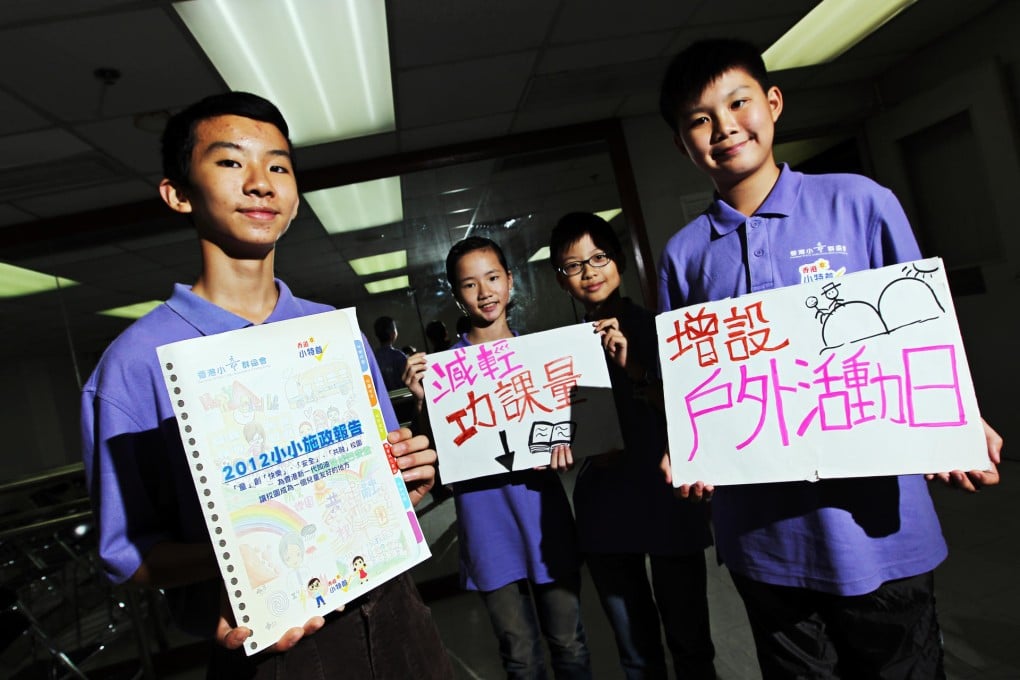Children exercise their right to be heard
Hong Kong still lacks sufficient channels for children to exercise their right to participate and be heard, writes Elaine Yau

Twelve-year-old Alicia So Yung-ting reckons she gets short shrift from grown-ups. Her school doesn't provide a channel for students to express their ideas and her parents tend to brush aside her wishes. All in all, adults don't pay much attention to her views.
"My parents usually ignore my opinions," she says. "I've told them many times the tutorial centre I am attending is useless; it just gives me homework. But they force me to go."
Then there's the matter of playing the piano. She wants to practise at night, but her mum forbids it because she's afraid it will disturb her dad.
Last month, Alicia got a rare opportunity to voice her views when she joined 31 other members of the Junior Chief Executives of Hong Kong programme in presenting a mock policy address to government officials. Planners and policymakers would do well to take greater heed of such submissions. They only have to recall how Scholarism, the student pressure group led by 15-year-old Joshua Wong Chi-fung, fired up widespread protests that eventually forced a U-turn in plans to introduce national education to schools.
As the world marks Universal Children's Day on Tuesday, children's rights campaigners point out that Hong Kong still lacks channels for children to exercise their right to participation, one of four basic tenets enshrined in the United Nations' convention on the rights of the child.
Hong Kong is affluent enough to provide a security net that generally ensures children's rights to survival, development and protection, "but children's voices are not respected", says Irene Chan Man-tuen, chief executive of the Hong Kong Committee for Unicef.